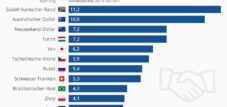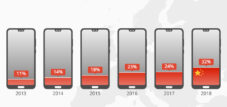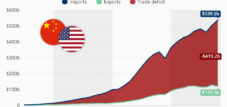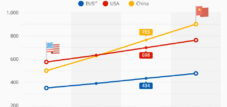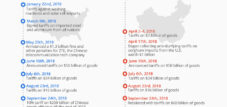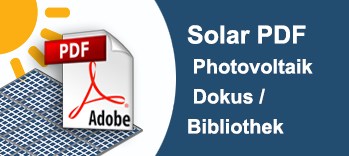Now it has happened: Punitive tariffs on Chinese electric cars because of state subsidies - the EU is reacting to unfair competition from China
Language selection 📢
Published on: October 5, 2024 / update from: October 5, 2024 - Author: Konrad Wolfenstein
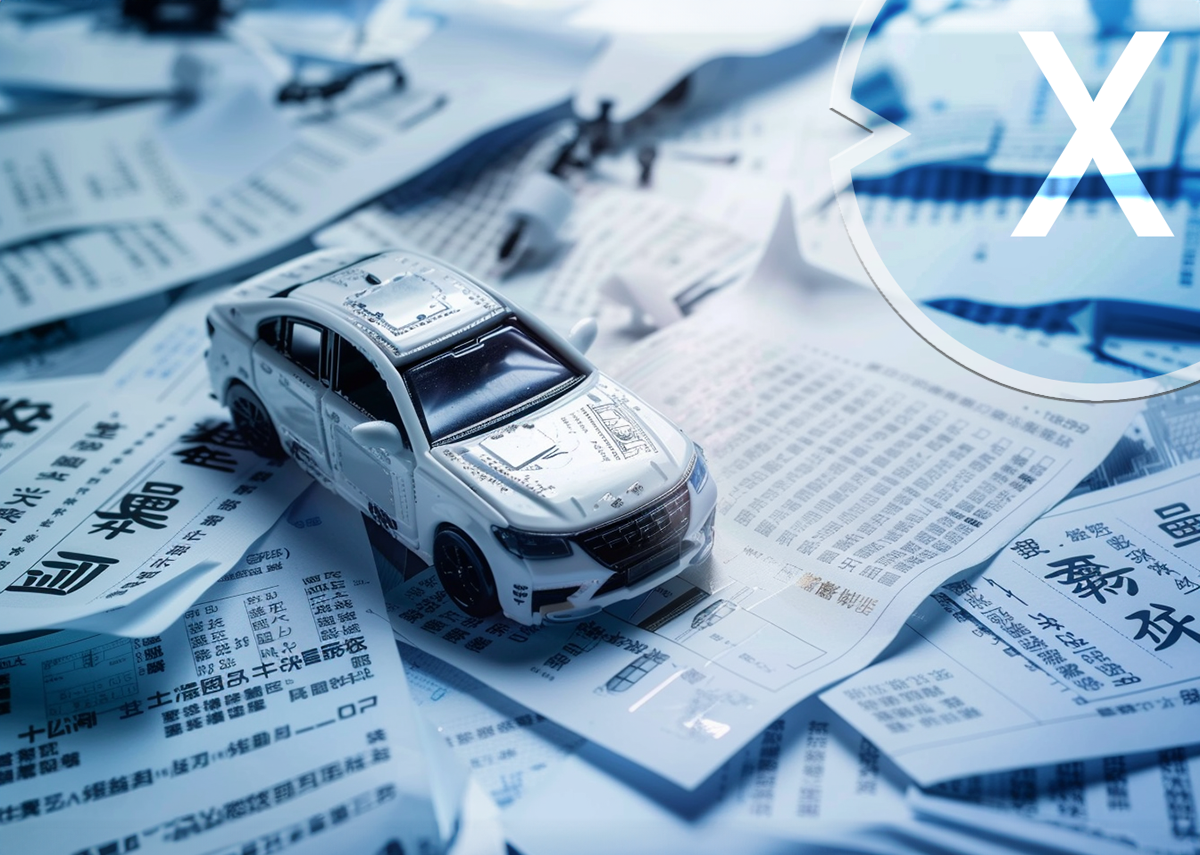
Punitive tariffs on Chinese electric cars due to state subsidies – EU reacts to unfair competition from China – Image: Xpert.Digital
🌍⚖️ EU: Measure against subsidized electric vehicles from China
🇪🇺🛠️ EU relies on tariffs: Fair conditions in the electric car market - tariffs on state-subsidized Chinese electric cars
The European Union recently decided to impose punitive tariffs on electric vehicles from China. This decision is the result of a comprehensive investigation by the EU Commission, which concluded that Chinese electric vehicles benefit from significant government subsidies and therefore have an unfair competitive advantage over European manufacturers. The tariffs are expected to be up to 35.3% and come into force at the beginning of November at the latest.
💼📉 Reasons for the introduction of punitive tariffs
The EU Commission argues that the Chinese government's subsidies distort competition in the European market. Chinese electric vehicles are therefore significantly cheaper than their European counterparts. The tariffs are intended to compensate for this price advantage and protect the European automotive industry. The decision follows a year-long investigation that began in October 2023 and scrutinized the practices of the Chinese auto industry.
🗣️🤝 Reactions within the EU
There are different opinions on punitive tariffs within the EU. Countries like France and Italy support the measure, while Germany, Spain, Hungary and other countries oppose it. Germany, as one of Europe's largest automotive nations, fears negative effects on its auto industry. German manufacturers such as Volkswagen, BMW and Mercedes produce many of their vehicles in China for export to Europe and could be severely affected by the tariffs.
🔧🚙 Impact on the automotive industry
The introduction of punitive tariffs could have a significant impact on the prices of electric vehicles. Experts expect prices for Chinese electric cars to increase significantly in Europe, which could make them less competitive. This could also affect German manufacturers who produce in China. An example is the BMW iX3 or the Mini Cooper, whose prices could rise due to tariffs.
🔄⚔️ Possible countermeasures by China
China has already signaled that it views the tariffs as protectionist and may take countermeasures. These could impact European exports to China and trigger a trade conflict between the two economic areas. China has already launched investigations into European imports such as brandy and dairy products, which is seen as a possible response to the EU tariffs.
🔮🤝 Conflict was inevitable
Despite the passage of the tariffs, the possibility of negotiations between the EU and China remains. Both sides are interested in finding a solution to avoid a comprehensive trade conflict. The EU Commission has said it will continue to hold talks with China to find an alternative solution. Such a solution would have to be WTO-compliant and take into account the interests of both European and Chinese industries.
The imposition of punitive tariffs on Chinese electric vehicles is a complex issue that encompasses both economic and political dimensions. The coming months will be crucial in determining whether a negotiated solution can be found or whether trade relations between the EU and China will continue to deteriorate.
📣 Similar topics
- 📣 EU decision: punitive tariffs on Chinese electric cars
- 🚗 Reasons for the EU punitive tariffs on electric vehicles
- 💬 Different reactions within the EU
- 🇫🇷 Support for tariffs: France's perspective
- 🇩🇪 German concerns about the new EU tariffs
- 🏭 Impact on the European automotive industry
- ⚖️ Price increase for Chinese electric cars expected
- 🇨🇳 China's potential countermeasures analyzed
- 🔄 Future of trade between EU and China
- 🌍 Talks to avoid a trade conflict
#️⃣ Hashtags: #EUTariffs #ChinaEUTrade #Automotive Industry #Punitive Tariffs #Trade Conflict
September 2023 | ⚡🚗 Anti-subsidy investigation: EU launches investigation and examines measures against subsidized electric cars from China
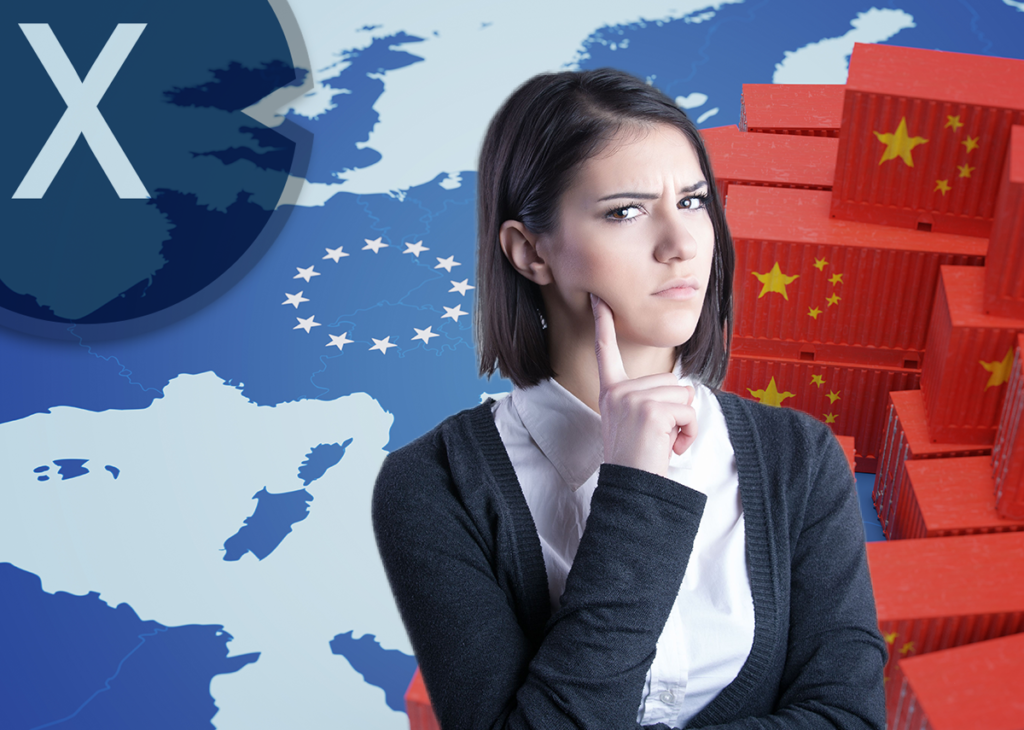
EU launches investigation and examines measures against subsidized electric cars from China – Image: Xpert.Digital
China has pursued an ambitious strategy to promote electric cars in recent years. This includes massive government support in the form of subsidies, tax incentives and other financial incentives for electric car manufacturers.
More about it here:
🚗⚖️ EU decides on punitive tariffs on Chinese electric vehicles: Impact on global electromobility
🔒📝 The European Union's decision to impose punitive tariffs on electric vehicles from China could have a significant impact on global electric mobility. This measure aims to protect the European automotive industry from competition from subsidized Chinese vehicles. However, the decision could have far-reaching consequences for the global spread of electric vehicles and international trade relations.
🌍📈 Impact on the global market
1. Change in trade flows
The introduction of punitive tariffs could lead to Chinese manufacturers seeking new markets outside the EU to compensate for their exports. Countries with smaller domestic automobile industries could benefit from cheaper imports, while countries with significant automobile production could face increased competitive pressure.
2. Increased pressure on other markets
As Chinese electric vehicles may be pushed out of the EU and US, they could become increasingly available in other regions. This could lead to governments in these regions also taking action to protect their domestic industries.
3. Rising electric vehicle prices
In the EU, prices for electric vehicles could rise because production within Europe is more expensive than in China. This could dampen demand for electric vehicles and slow the transition to clean mobility.
🌐🤝 Political and economic tensions
1. Trade conflicts
The tariffs could trigger a trade conflict between the EU and China. China has already threatened to take countermeasures, which could further strain trade relations.
2. Impact on European manufacturers
European automakers that produce in China or are heavily dependent on the Chinese market could also suffer from the tariffs. This particularly affects German manufacturers such as Volkswagen and BMW.
3. Long-term changes in production
Some Chinese manufacturers may consider setting up production facilities in Europe to avoid tariffs and maintain a presence in the European market.
🚀🏭 Opportunities for European industry
1. Promote domestic production
The tariffs could help increase production of electric vehicles within the EU and secure jobs in the region[3].
2. Strengthening competitiveness
European manufacturers may be forced to increase their innovation and develop more efficient production methods in order to remain competitive.
3. Promote sustainable mobility
In the long term, the measure could help advance sustainable mobility solutions within Europe and reduce dependence on imported vehicles.
📣 Similar topics
- 📊 Impact of EU tariffs on the global e-mobility market
- 🚗 EU protects with tariffs: battle for the car market
- 🌍 Global trade flows are changing due to EU tariffs
- 🔍 Rising EV prices in the EU: What does that mean?
- ⚙️ European automotive industry in focus of tariffs
- 📈 Future of EV production in Europe through tariffs
- 🤝 Trade conflicts between the EU and China are looming
- 🌿 Opportunities for sustainable mobility in the EU
- 🏭 Relocating production to Europe: An option?
- 🎯 Strengthening EU competitiveness through tariffs
#️⃣ Hashtags: #EUMarket #Trade Conflicts #Electromobility #EuropeanIndustry #Sustainability
💭📦 Why actually? Duty-free imports from China lead to distortions of competition and tax losses - and then there are safety and quality concerns

Duty-free imports from China lead to distortions of competition and tax losses - Image: Xpert.Digital
In recent years, the rise of duty-free imports from China has caused a stir, particularly in Europe and the US. At first glance, duty-free imports seem to be a boon for consumers as they offer a wide range of affordable products. But a closer look reveals significant disadvantages that go far beyond the supposed advantages. These imports not only lead to massive distortions of competition, but also to significant tax losses and threats to the safety and quality of the products that enter the market.
More about it here:
We are there for you - advice - planning - implementation - project management
☑️ SME support in strategy, consulting, planning and implementation
☑️ Creation or realignment of the digital strategy and digitalization
☑️ Expansion and optimization of international sales processes
☑️ Global & Digital B2B trading platforms
☑️ Pioneer Business Development
I would be happy to serve as your personal advisor.
You can contact me by filling out the contact form below or simply call me on +49 89 89 674 804 (Munich) .
I'm looking forward to our joint project.
Xpert.Digital - Konrad Wolfenstein
Xpert.Digital is a hub for industry with a focus on digitalization, mechanical engineering, logistics/intralogistics and photovoltaics.
With our 360° business development solution, we support well-known companies from new business to after sales.
Market intelligence, smarketing, marketing automation, content development, PR, mail campaigns, personalized social media and lead nurturing are part of our digital tools.
You can find out more at: www.xpert.digital - www.xpert.solar - www.xpert.plus








